
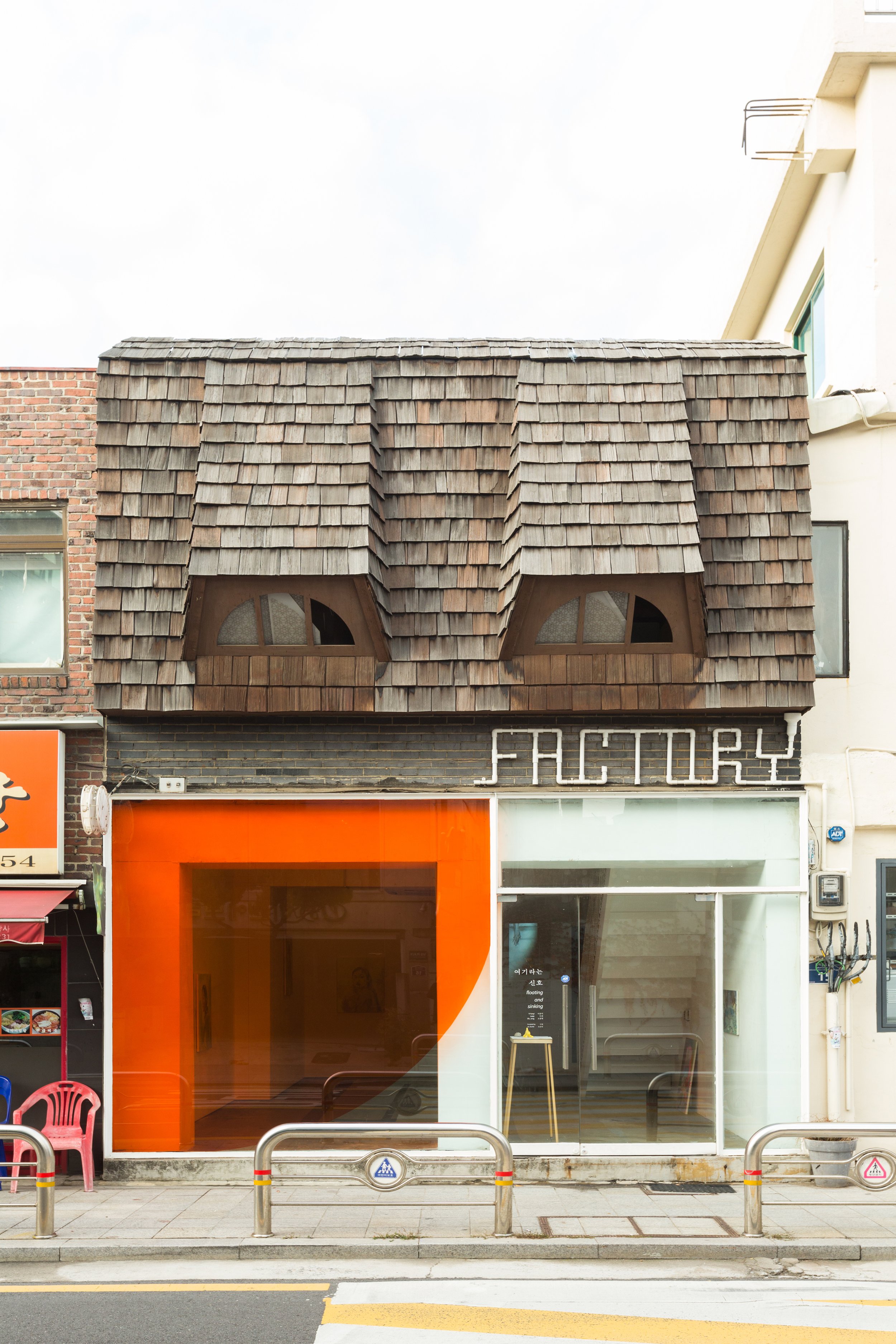
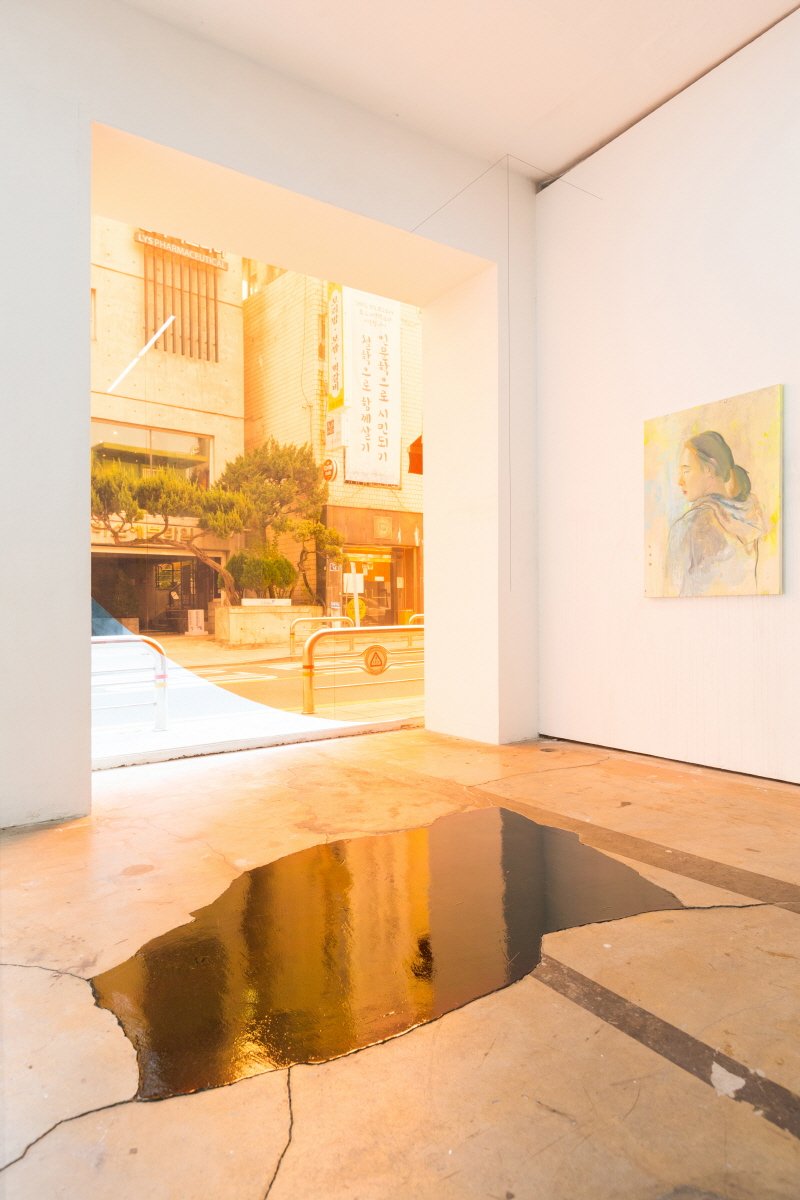
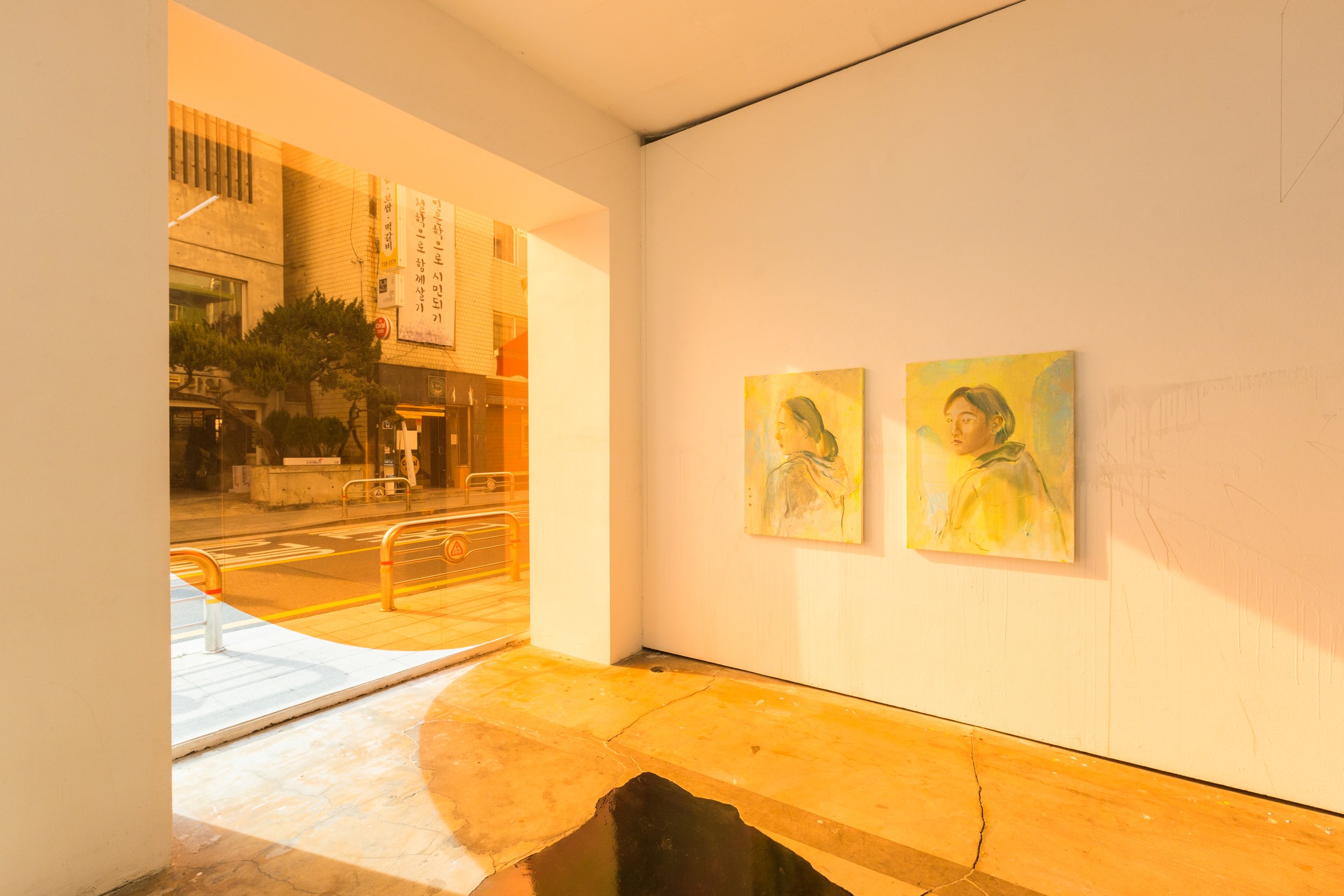
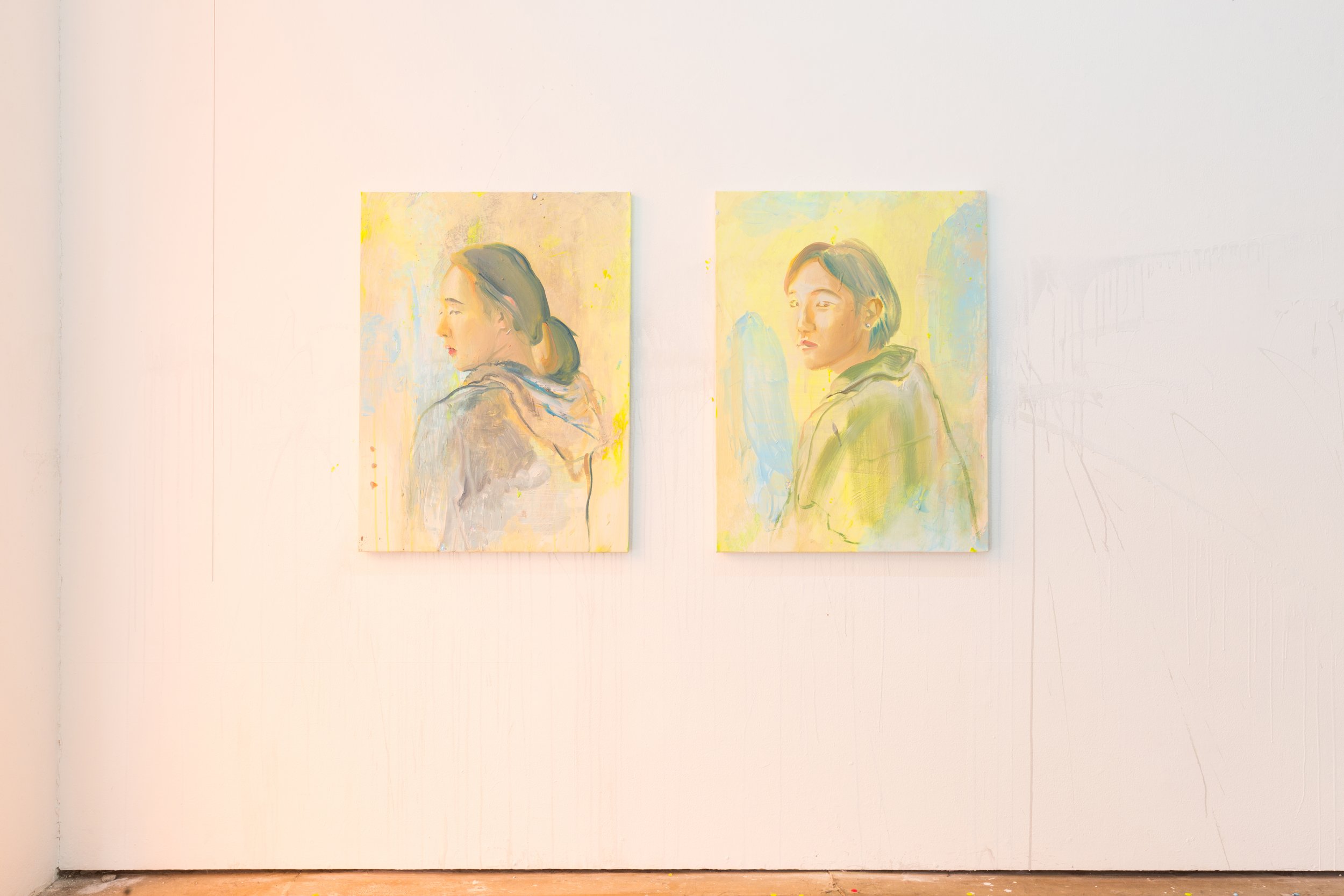
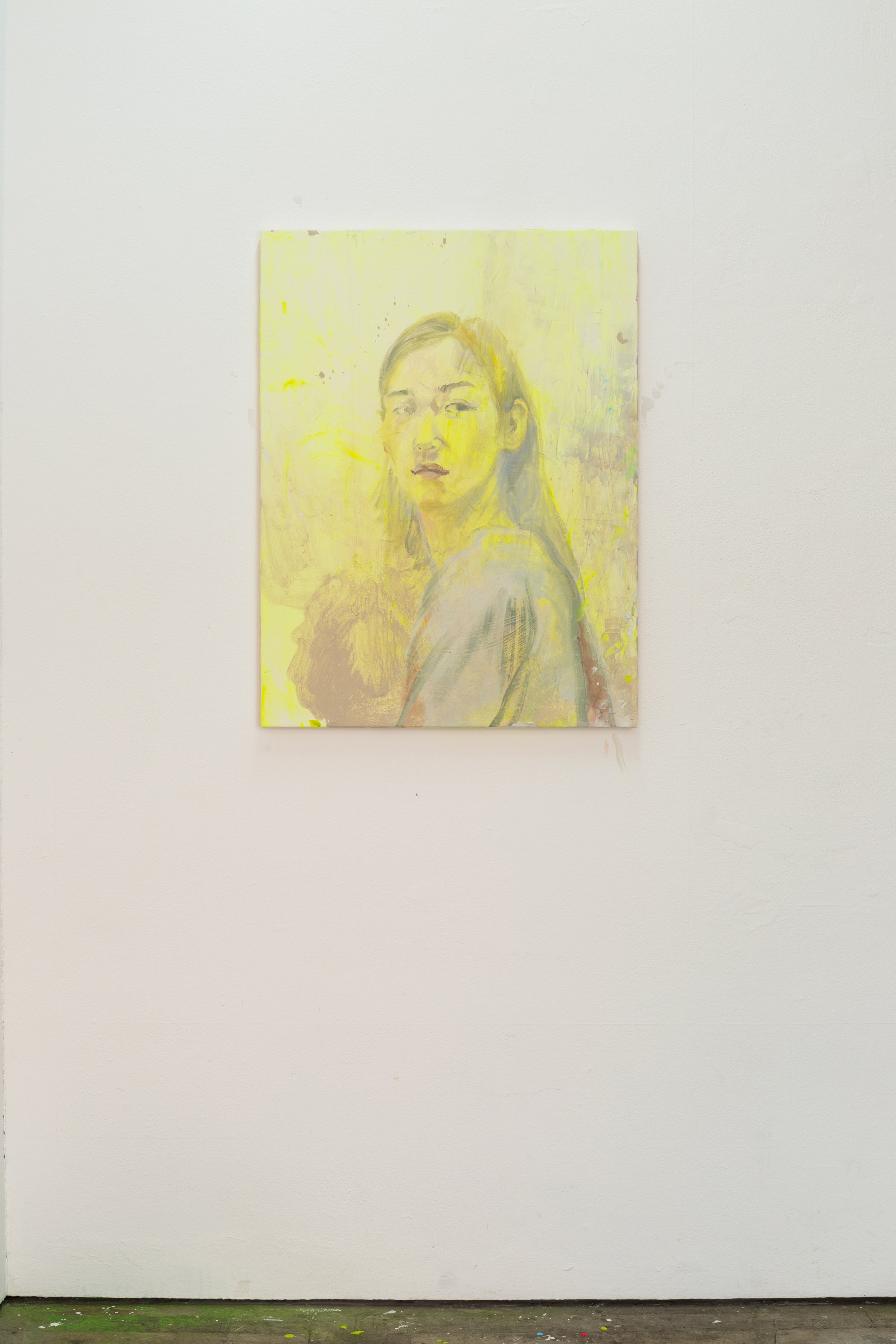
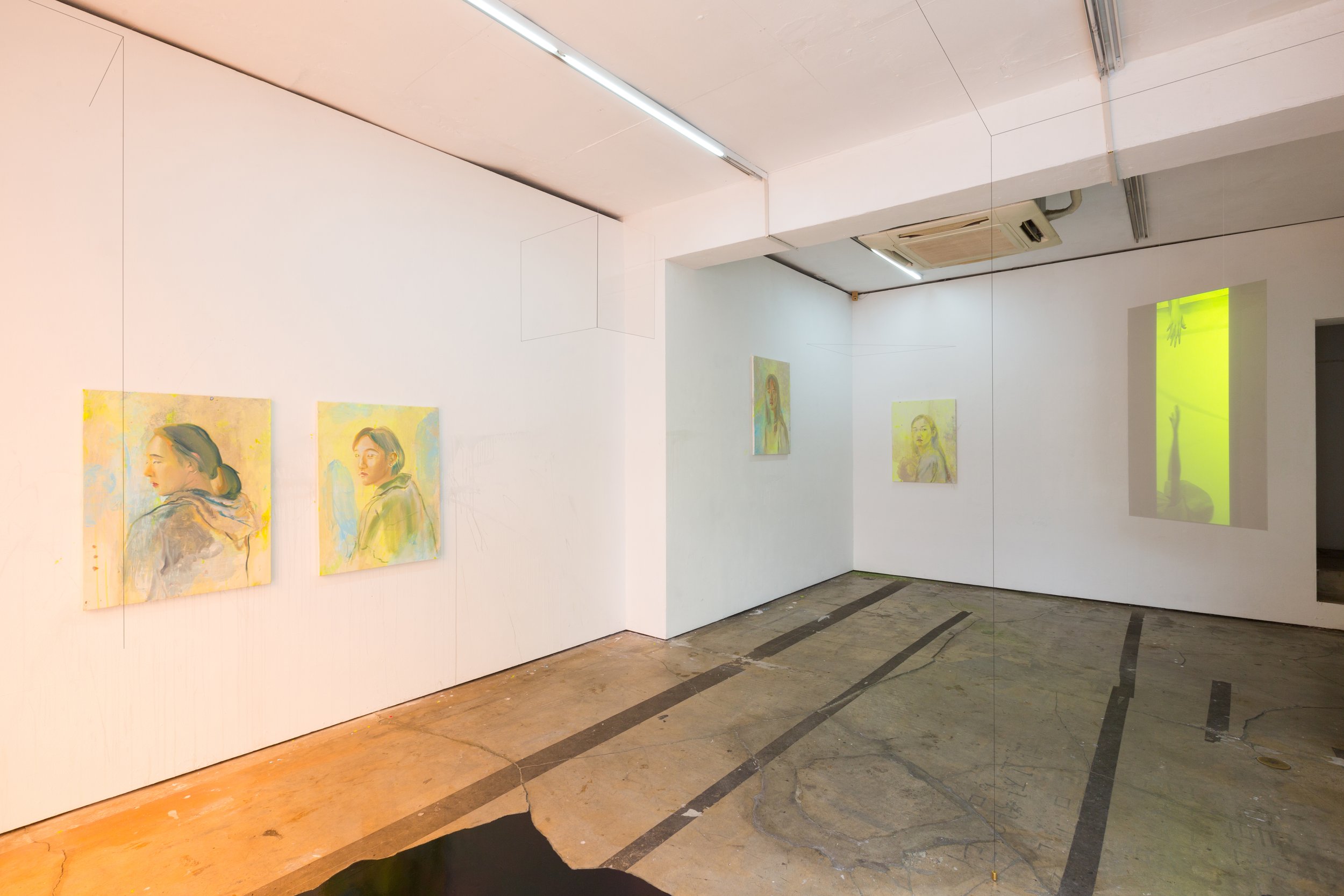

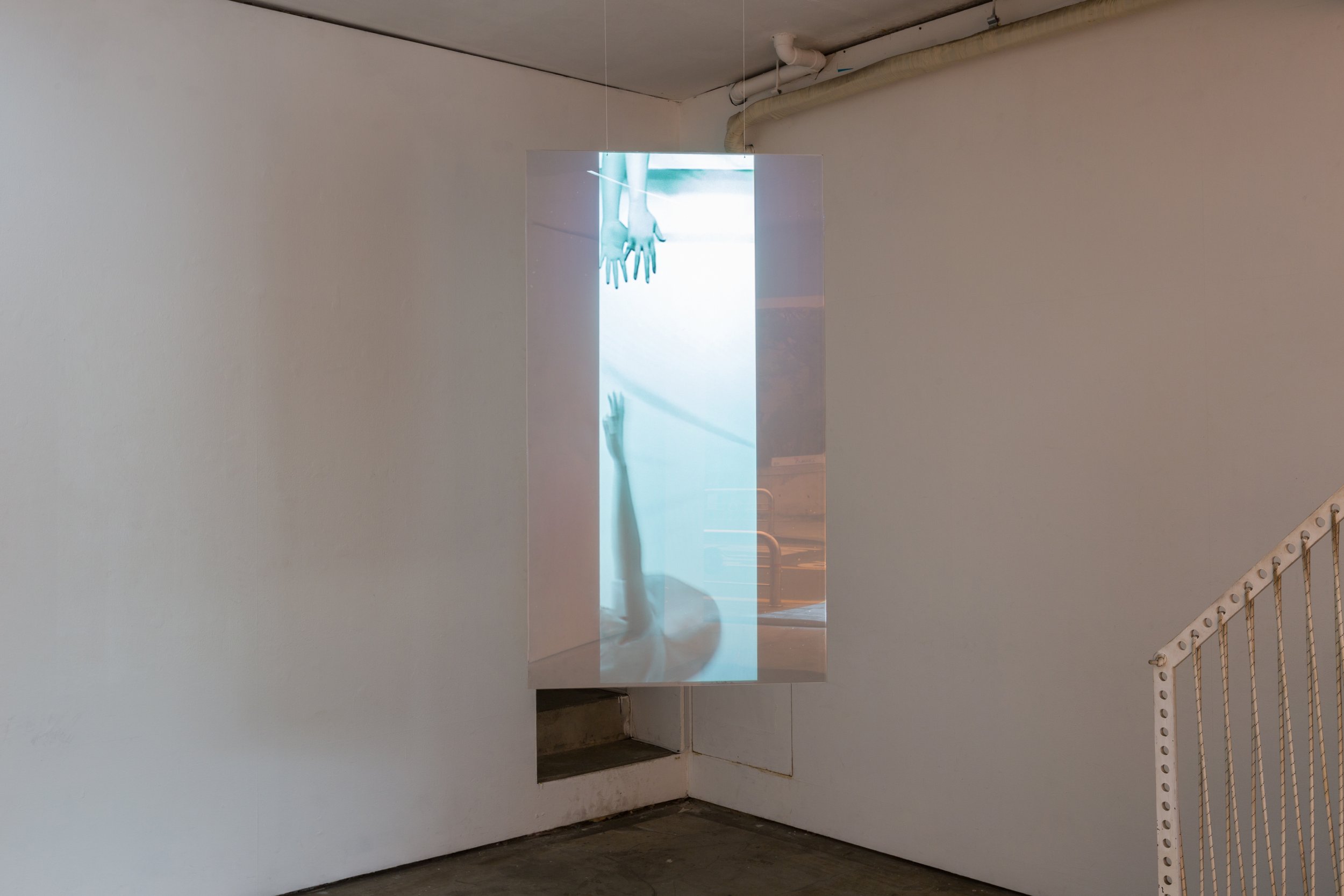
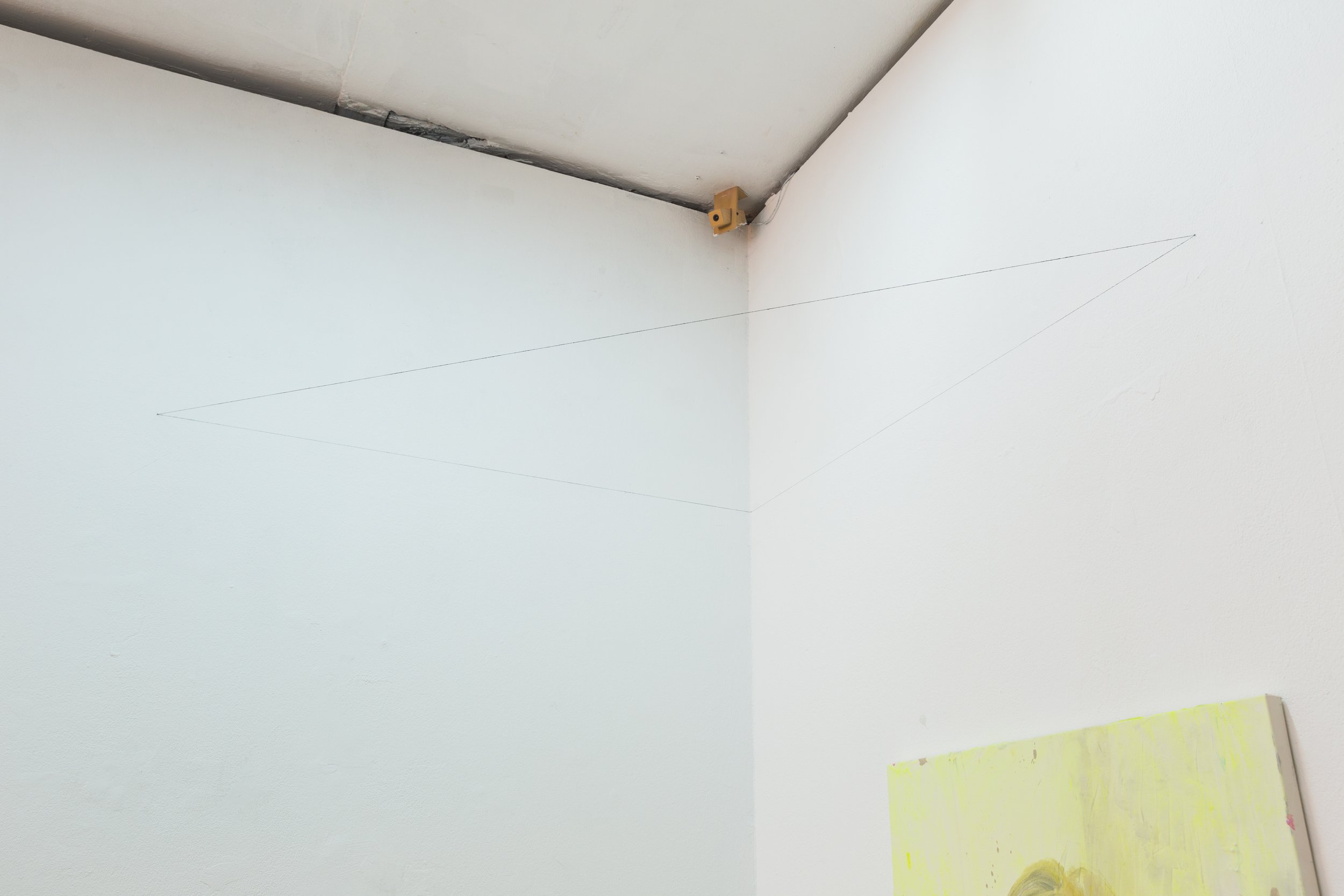
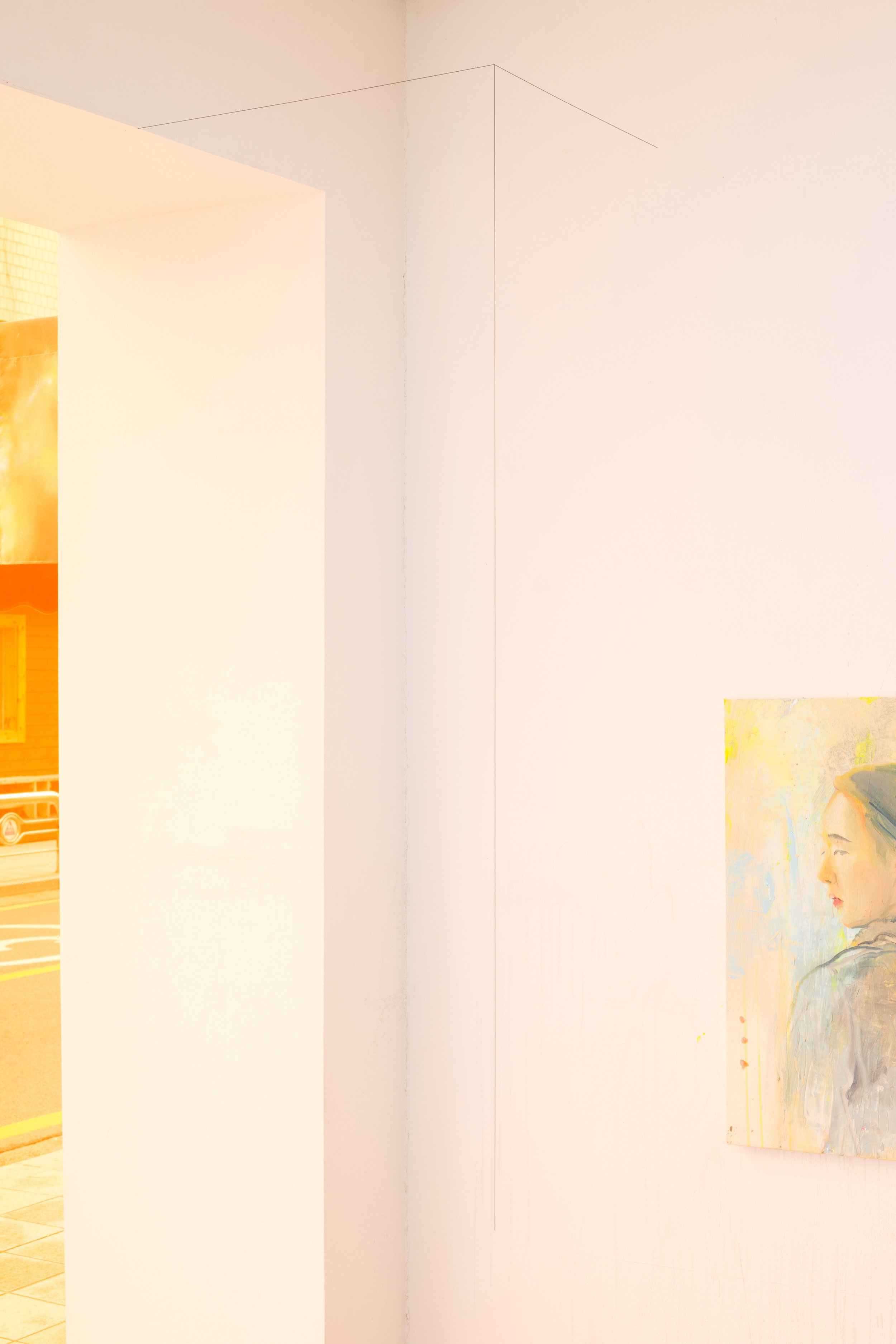


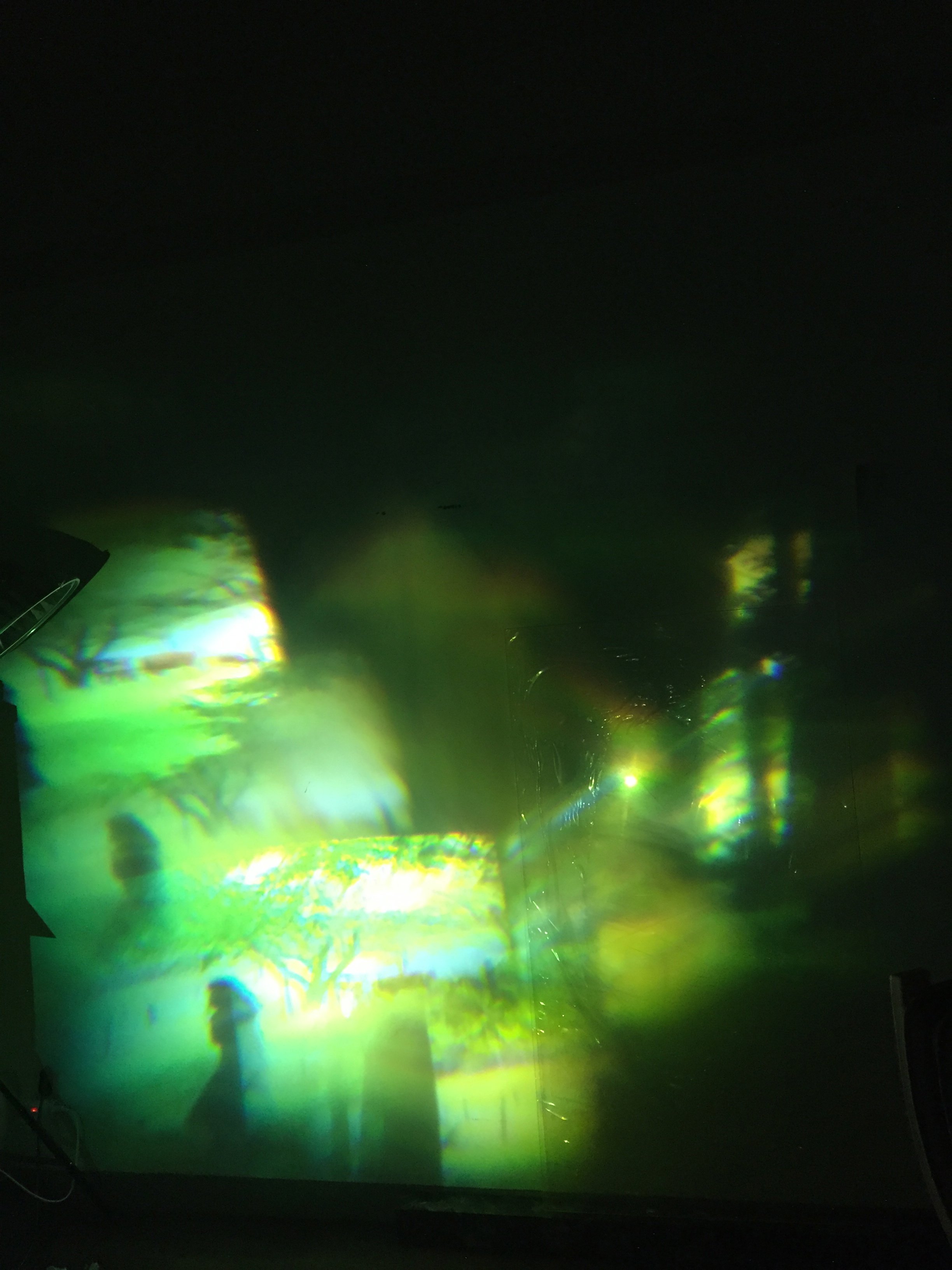

여기라는 신호 Floating and Sinking
2015. 11. 6 ~ 12. 13
장소: 갤러리팩토리 Venue: Gallery Factory
참여작가: 이윤이 이제 오종현 Artists: Yi Yunyi, Leeje Oh, Jong
기획: 조은비 Curated by Eunbi Jo
디자인: 박연주 Design: Park Yeonju
사진: 홍철기 Photography: Hong Cheolgi
번역: 김솔하 Translation: Kim Solha
후원: 한국문화예술위원회, 서울문화재단 Sponsored by: Korea Culture and Arts Council, Seoul Cultural Foundation
신호 셋:
1. 혐오의 시대, ‘공감과 상호인정’ 이현재 (서울시립대 도시인문학 연구소 HK교수) / 2015. 11. 28. 5시
2. 대화, 이제(참여작가)와 동료들 2015년 12월 03일(목) 저녁 8시
3. ‘네가 나를 만지는 시간’ with 스크리닝 - 김행숙(시인), 이윤이(참여작가) 2015년 12월 12일(토) 오후
서문 *english ver. below
“자, 알베르가 의자에서 고꾸라질 때처럼 몸에서 힘을 쫙 빼봐. 그럼 몸이 코르크 마개처럼 물 위로 떠오를 거야. 아줌마에 대한 절대적 신뢰 속에 난 몸의 힘을 다 빼고 수면으로 다시 올라왔다. (...) 내일은 깊은 웅덩이에다 던져주세요. 너 혼자선 왜 못들어가는데? 무서우니까 그렇죠! 공포가 희열로 바뀌는 묘한 경험. 더 멀리 던져주세요. 더 높은 데서 던져주세요, 또요! 또요! 매번 불안감은 용기로, 용기는 즐거움으로, 즐거움은 자부심으로, 자부심은 행복으로 바뀌었다.”
- 다니엘 페나크, <몸의 일기>, 문학과 지성사, 352p.
이 전시는 비유컨대, 떠오름(floating)에 관한 것이다. 떠 있다는 것은 가라 앉으려는 무게에 대한 반작용으로, 올라가려는 힘에 의해 지탱된다. 이 힘은, 상승과 하강, 유영과 침몰, 돌아봄과 직진을 목전에 둔, 아직 ‘어쩔 줄 모르는’ 것들 사이에 존재한다. 다시 말해, 떠 있다는 것은 반쯤 잠겨 있다는 뜻이기도 하다. 그렇게 위아래로 팽팽하게 잡아 당겨진 ‘떠 있는 것’은, 단단한 토대를 잃고 너울처럼 요동치는, 지금 이 세계 속 개인들의 아슬아슬한 모습과 닮아있다. 한국 사회를 완강하게 지배하던 제도나 관습, 혹은 생애주기와 같은 규범들이 약화되면서, 개인들은 '부유하는 느낌'을 받는다. 기존 트랙에 닥친 위기는 오히려 이를 수호하기 위한 움직임을 추동시키지만, 동시에 거기서 이탈한 개인들은 (표류하지 않으려는) 주관적인 삶에 대한 의지를 갖기도 한다.
이 전시의 참여 작품들 역시 고정된 형태를 지니지 않고 유동적인 경계를 이루면서 마주한다. 그렇게 전시는 한 공간에 놓인 서로 다른 물성들(회화와 설치, 무빙이미지와 사운드)의 상호작용에서 비롯한, 찰나의 감각을 섬세하게 드러내고자 한다. 이 유동적인 상태는 오늘날 미술가와 작품의 존재 방식만이 아니라, 대부분의 개인이 처한 보편적인 현실을 지시하며, 전시의 질문을 끌어낸다. 너(나)의 부력을 어떻게 유지할 수 있을까.
등대가 보이지 않는 망망대해 위를 떠다니며 서로에게 보내는 ‘여기라는 신호’는, 만남에 대한 불확실성 그리고 그 속에서 끝끝내 건져 올리고 싶은, 어떤 의지의 표징이다. ‘닿을 듯 말듯’, ‘보일 듯 말듯’, ‘돌아설 듯 말듯’ 한 그 찰나의 가능성은, 지금 이 순간에도 어디에선가 쏘아 올린 불분명한 신호처럼 상존하고 있을 것이다. 그것은 여기 스마트폰 화면 위로 부표처럼 떠오른 접속 (불)가능한 여러 네트워크의 신호일지도, 혹은 정박지를 잃은 누군가의 긴급한 조난 신호일지도 모른다.
이제(1979)는 삶에 대한 성찰이 통과하는 수행적인 ‘그리기’를 통해서 화면 속에 ‘온기’를 불러내 왔다. 이 전시에서 작가는 인물의 순간적인 동작을 여러 장면으로 나누어 연속적인 화면을 구성한다. 개별 화면 속의 인물은 한 명이면서 동시에 여럿으로, 한국 사회 속에서 여기저기로 ‘떠밀리는’ 아주 보통의 여성을 표상한다. 여기서 그녀(들)의 반쯤 비튼 자세는 외부(혹은 타자로서 ‘관객’)의 신호에 대한 양가적인 해석을 끌어낸다. 이는 누군가의 부름에 대한 응답일 수도 있고, 오히려 뒤를 돌아보지 않고 앞을 향해 전진하려는 의지일지도 모른다. 아직 확정되지 않은 상황 속에서 인물의 내적 갈등과 그녀의 고개 앞뒤에 존재하는 ‘현실’은 관객의 위치와 시점에 따라 다양하게 해석될 수 있다.
이윤이(1979)는 자신의 사/공적인 기억과 이야기들을 작업의 모티브로 삼아, 사운드와 이미지, 텍스트를 혼합한 영상으로 구현해왔다. 이번 전시에서 작가는 영상에서 나타나는 상승과 하강의 움직임과 정서적인 상태에 대한 표현 가능성을 고민한 영상 설치를 선보인다. 누군가를 향해 손을 뻗는 행위가 반복되는 ‘무빙 이미지’는 (어딘가에) “닿을 듯 말 듯”한 절박함을 드러내며, 그럼에도 불구하고 ‘너’를 놓지 않고, 그것에 가닿겠다는 의지적인 태도를 남겨둔다. 특히, 전시 공간에서 고조와 저조를 반복하며 울려 퍼지는 양각 나팔 소리는, ‘보이지 않는 것’을 향한 원초적인 신호로써 작품의 공감각적인 심상을 건드린다.
오종현(1981)은 선, 면과 같은 단순한 구성에 의한 최소한의 개입을 통해 공간적인 경험이 유발하는 긴장을 드러내는 장소 특정적인 설치 작업을 해왔다. ‘실, 나무 막대, 쇠막대, 투명한 낚싯줄, 연필선’ 등 매우 단순한 선적인 재료들을 이용해서 공간에 즉흥적으로 반응하는데, 특히 전시 공간에 존재하는 중력, 빛과 조명, 그림자와 같은 요소를 작품에 적극적으로 이용한다. 자세히 보지 않으면 지나칠 수 있는, 공간을 가로지르는 “보일 듯 말 듯”한 미세한 실선의 ‘장력’은 공간에 긴장과 떨림을 조성한다. 이렇게 공간과 작업의 아슬아슬한 균형 위에서 둘 사이의 경계는 모호해지고, 작가는 공간과 작품 사이에서 섬세한 균형을 맞춘다. 작가에 있어 이때의 ‘균형’은, 양쪽의 힘이 맞닿아 공존하는 상태이며, 이는 작품과 관객이 대면하는 순간을 은유한다.
Floating and Sinking
“Look, try to relax your body like when Albert falls off the chair. Then your body will float on the water's surface like a cork. Having absolute trust on the lady, I relaxed my whole body and resurfaced out of the water. (...) Please throw me into a deep hole tomorrow. Why can't you go in by yourself? It's because I'm scared, of course! Strange experience of fear transforming into bliss. Throw me farther. From a higher spot. Again! Again! Every time, anxiety changed to courage, courage to joy, joy to pride, pride to happiness.” - Translated from the Korean translated version, Daniel Pennac, <Journal d'un corps>, Moonji Publishing, 352p.
This exhibition as a metaphor, is about floating. Floating is the counteraction against drowning weight, maintained by the soaring power. This power exists between things which are still 'not aware of what to do' right at the brink of rise and fall, swimming and sinking, turning back and going ahead. In other words, floating also means half-submerged. As such, 'floating' in the sense of being tightly stretched upward and downward, resembles the individuals in this current world who have lost their solid ground, their risky fate thrashing about like a heaving sea. This feeling of floating springs from the weakening of the norms that had been strongly ruling the Korean society, such as the nation, people, system or custom, life cycle. As the existing tracks become unstable, the norms designed to guard these tracks strengthen themselves and simultaneously, we can find the urge growing for (anti-drift) subjective life of individuals who have broken away from such tracks.
Similarly, the exhibits in the show face each other while creating fluid borders, without any fixed form. The exhibition attempts to reveal the delicate sense of the instant which springs from the reactions among different materialities(painting, installation, moving image, and sound) in a single space. This fluidness not only indicates the existential manner of the contemporary artist and artwork, but also the universal reality in which most individuals find themselves, and brings about the question cast by the exhibition. How can your(my) buoyancy be maintained? 'The signal I am here' sent to each other while floating around the open sea where not a single lighthouse is in sight, is a symbol of the uncertainty of encounter and of a certain will to fish something out of such uncertainty. The possibility of the instant which is 'almost palpable', 'nearly visible', and 'just about to turn away', must exist at this moment as some unclear signal launched from somewhere unknown. It might be the signals of various networks which can(not) be accessed which float on the smartphone screen like buoys, or the emergency signals sent from somebody who has lost anchorage.
Leeje has called upon the 'warmth' onto the screen by performative 'drawing' through which reflection on life passes. In the exhibition, the artist composes consecutive screens by dividing a figure's momentary movement into several images. The figure found in each screen is expressed as a single person and several people at the same time, representing an average woman who is 'shoved' around in the Korean society. Her half-twisted posture alludes to the ambivalent interpretation of the exterior signal(or the audience as the other's signal). This could be a response to somebody's calling, or else, the will to proceed without turning back. In the yet uncertain situation, the 'reality' existing in front of or at the back of the figure's interior conflict and her head shift, could be interpreted in diverse ways according to the location and viewpoint of the audience.
Yunyi Yi has realized videos mixing sound, image and text, based on her private/official memories and stories as her motifs for creation. In the exhibition, Yi presents the video installation work in which she has revealed the possibility of expressing the movements of rise and fall in the video and the emotional state. 'Moving Image' made of repeated movements of stretching one's arm toward somebody, portrays the desperateness of “almost palpable yet not quite there” and despite this state, the willful attitude of not giving up on 'you' and trying to reach it remains. Especially, the sound of trumpet resonating in the exhibition space while repeating high and low tunes, stimulates the synesthetic image of the art work as the primitive signal sent toward 'something invisible.'
Jong Oh has been working on site-specific installation work revealing tension created by spatial experience with minimum intervention of simple compositions of lines and planes. The work reacts impromptu to the space by using very simple linear materials such as 'thread, wooden or metal stick, transparent fishing line, pencil mark' and actively applies the elements of gravity, light, shadow found in the venue. The 'pulling force' of “almost invisible” fine lines which can be lost if not closely observed, cuts across the space while creating tension and tremor. Upon this risky balance between space and work, the border between the two becomes unclear and the artist strikes a delicate balance between them. The 'balance' for the artist is the state of coexistence of the space and the work with both powers in touch with each other, and this state is the metaphor of the moment the work and audience face each other.